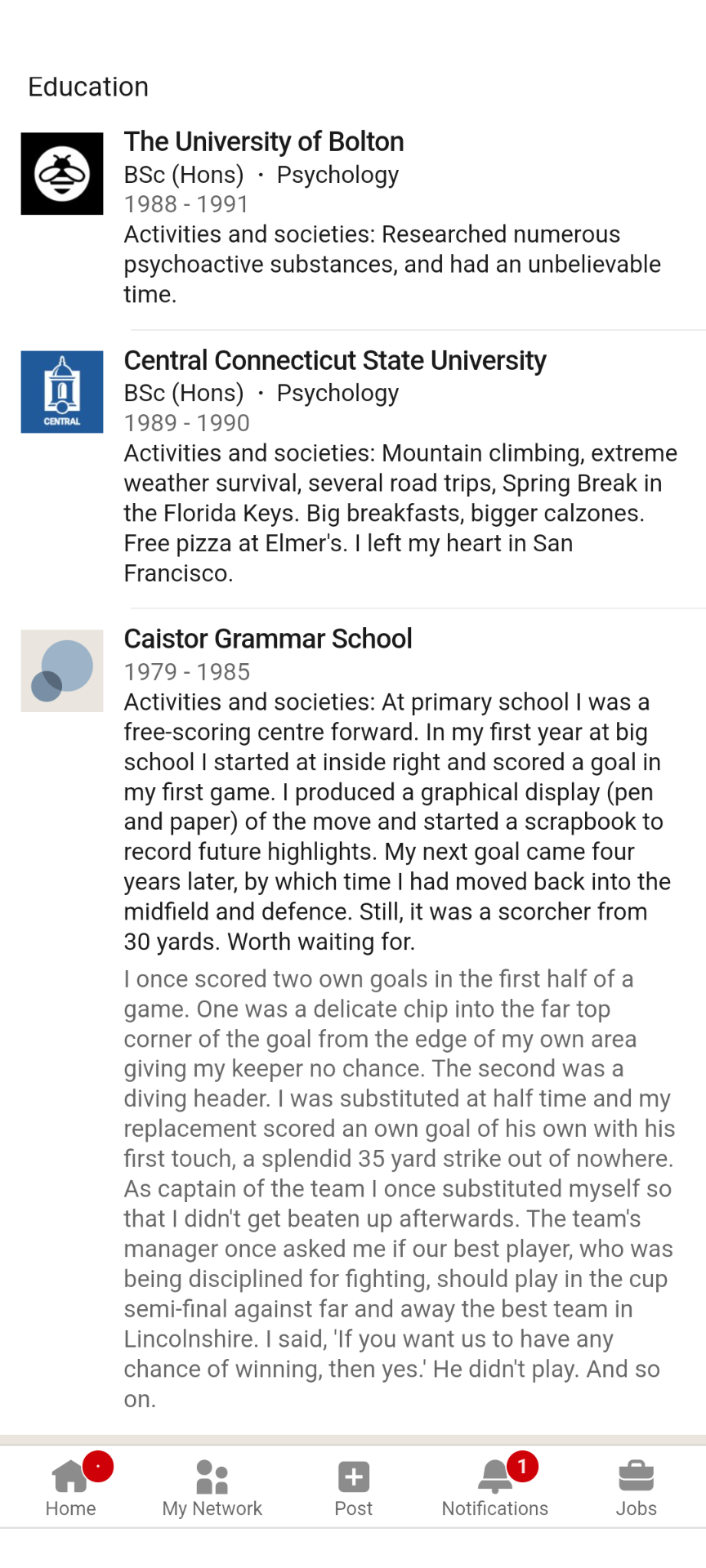Category: Work
You are viewing all posts from this category, beginning with the most recent.
Notionally returned to wfh today.
✅ Made chilli sans carne
✅ Emailed work to say I will try to ease myself back into things, but still feeling exhausted
✅ Declined work meetings on health grounds
✅ Had a three hour nap
✅ Woke just in time for a late lunch
✅ Picked kids up from school
WFH Saved My Life
I’ve worked from home since the end of February 2020. I transferred all my work and systems online to do so, and while I’m still part-time, in practice I’m now available 24/7 for every conceivable administrative emergency (“Hi David. Please order me some large coloured post-it notes and have them delivered to my home tomorrow” or “Hi David. Please bring £200 in cash to my house this morning so I can pay for my lunch meeting today.").
I won’t pretend I’ve always been highly productive, in the office or at home. But I always get everything done that needs to be done, and I’m super-flexible and adaptable. I’ve been asked to do - and done - huge, complex projects at short notice and with short deadlines that are outside of my remit and frankly beyond my skill set, but I’ve done them, learned how to do it on the spot or got help.
I do go into the office for occasional in-person meetings and social gatherings (“xmas lunch” looms) when necessary, and indeed spent a solid three hours working last Thursday with a masked colleague (she had a fever) in a freezing cold office. I’d just recovered from a bad reaction to the covid vaccine. Next day was a write-off. I was exhausted and worried about whether the work we did was really good enough. The day after and since I’ve had a terrible cough and cold, shortness of breath, wheezing. (Since my COPD diagnosis, every rasping breath I take is assessed and rediagnosed by my non-medic wife as requiring medical attention.)
My workplace is bad for my health. Pre-covid I had multiple chest infections that kept me away from work and reduced my productivity to zero for weeks at a time. Since I worked from home, and catching covid aside, I’ve had zero time where I’ve been unable to go to the office for essential work that can only be done there. Even when I’ve had coughs and colds, I’ve felt well enough to do the work that needed to be done. Somehow (until now with this new cough) I don’t seem to get so ill or feel so bad when I’m at home.
Working from home has given me the time and space to transform how I work for the better. I’m better organised, more thoughtful, less rushed and distracted. I can honestly say that I’m now the most productive I’ve ever been thanks to a more comfortable, relaxed and focussed personal work space.
And, yes, being part-time, and flexible, I can take a nap if I need one.
Why should people work at home? https://youtu.be/bQN_Fb03RfE?si=CZoQagrotTA_urw8 The ‘return to work’ now being enforced by many organisations makes no sense for many people, or the planet. It really is time that we have some enlightened managers who did what is best for people and the world, and not what they see as being best for them.
Finished a grant application with a colleague just in time to meet tomorrow’s deadline.
A massive relief, and hopeful for success. Had hoped to get it done sooner but my covid hangover put paid to that plan.
Fortunately we’d done most of the groundwork in advance, but today was intense.
Chasing youths with carving knives
How my journey into care work was a serendipitous outcome of my search for meaning and purpose beyond the confines of traditional work. At least, that’s according to Google NotebookLM, based on my Curriculum Vitae series of blog posts.
I can’t opt-out of LinkedIn’s new AI data gathering exercise, and neither can I delete my account, because I can’t login (got a new phone, 2fa linked to old phone, fucked).
Hopefully their AI will be richer and more fully rounded as a result of my content.


Nine year old said he wanted to grow some potatoes, so we planted chitted seed potatoes in bags tonight.
He said he didn’t know it was so much work!


Thriving?
My son’s school’s Thrive teacher is leaving. She helped transform my lad’s experience of school from being one where he had weekly if not daily challenges with regulating his emotions and his behaviour, to one where he enjoys school every day. She’s going to be very greatly missed.
I managed to tell her this today and thank her for her work. It was so sad to hear her story.
She has committed ten years of her life to helping our youngsters get the best start in life, and done lots of extra work getting accredited to do so. But, at the end of the day, she can no longer afford to continue, and has taken a job elsewhere in sales and marketing.
What a stupid, shit country we live in.

